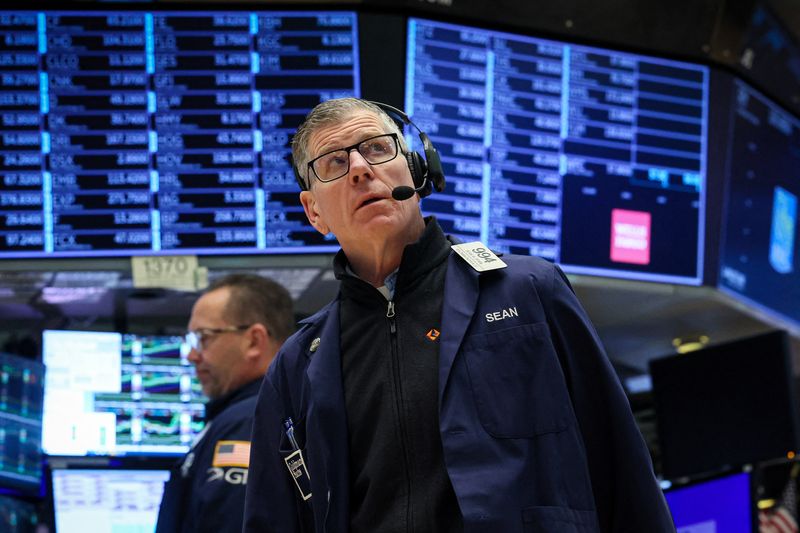Investing.com -- As the curtain closes on a "generally good" quarterly earnings season for corporate America, Barclays warns of an uncertain road for earnings in the coming quarter, paved with an ongoing slowdown in big tech earnings and macroeconomic headwinds.
"3Q24 EPS has been revised down nearly -5% since May and Y/Y growth is expected to fall by more than half vs. this reporting season," Barclays analysts noted, flagging the potential challenges ahead.
The gloomy outlook for the current quarter earnings pales in comparison to Q2 2024, which saw earnings per share growth reaching 11.7%, the highest in over two years, with about 81.2% of S&P 500 companies beating EPS estimates.
But while the Q2 earnings mostly beat expectations, the surprise factor, or the margin of the beat was "modest," the analysts note, knocking the aggregate surprise 4.1% below the long-term average.
The small surprise factor during this season was set before the earnings season officially got underway as a number of companies reported negative revisions leading up to the earnings reports.
Financials were the biggest winner, with "the highest EPS surprise in 3 years, 83% of the sector beating consensus and forward estimates moving higher," Barclays said.
Big tech also left its mark on the earnings season -- and not in a good way. Big Tech EPS growth, which led earnings growth over the past two years, suffered a second-straight quarter of decelerating earnings growth and is "also expected to continue decelerating next quarter," the analysts said.
NVIDIA Corporation (NASDAQ:NVDA), the touchpaper for the AI trade, was particularly noteworthy after posting its weakest EPS surprise of 5.4% in the last seven quarters, along with "modest" sales guidance, they added.
Earnings growth isn't expected to get any help on the macroeconomic front, the analysts believe, as uncertainty about whether the whether a soft landing or recession beckons continues to weigh.
"Further-out estimates [beyond 3Q24] are largely untouched; we think this is reflective of growing macro uncertainty," they added.
